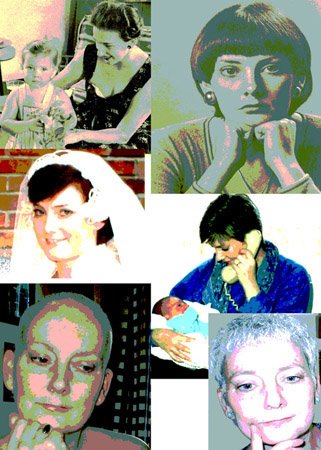Powerful writing
A Wanderer in Paris invited me amongst others to say what I considered powerful writing to be.
Quite a vast subject to tackle and it probably deserve more research and thought than I can offer it, but I will attempt to say something here.
The sort of writing that makes me sit up and pay attention usually uses language in fresh and interesting way to cast a new light or angle on a particular issue.
I also enjoy writers who are able to put themselves in other people's shoes. One of my favourite Carver poems is where he imagines himself losing his partner to illness as a means of showing Tess just how unbearable he finds the thought that he will shortly have to leave her behind. (I don't have the book to hand, but it's from A New Path to the Waterfall)
And I like writing that has an air of mild obsession about it, eg people who research a narrow field or a particular subject or issue from top to bottom. I suspect very little progress would ever be made without this type of thinker meeting up with the other type, the polymath, whose thinking ranges all over the place.
I'm also interested in great speeches. Few loved Churchill in peacetime,but he was astounding in WWII. This is one of his famous quotes from Sept 1941:
"Captain of our souls
The mood of Britain is wisely and rightly averse from every form of shallow or premature exultation. This is no time for boasts or glowing prophecies, but there is this — a year ago our position looked forlorn, and well nigh desperate, to all eyes but our own. Today we may say aloud before an awe-struck world, 'We are still masters of our fate. We still are captain of our souls.'"
And how about this from from Emmeline Pankhurst 1858 - 1928:
"We have to free half of the human race, the women, so that they can help to free the other half."
There are no great orators left, the sound bite has done for them, but we mustn't lose touch with our history, as it could stop us from repeating the countless avoidable tradegies that we see all around us - like folks preparing for an invasion based on the Rough Guide to the city and an atlas!
Quite a vast subject to tackle and it probably deserve more research and thought than I can offer it, but I will attempt to say something here.
The sort of writing that makes me sit up and pay attention usually uses language in fresh and interesting way to cast a new light or angle on a particular issue.
I also enjoy writers who are able to put themselves in other people's shoes. One of my favourite Carver poems is where he imagines himself losing his partner to illness as a means of showing Tess just how unbearable he finds the thought that he will shortly have to leave her behind. (I don't have the book to hand, but it's from A New Path to the Waterfall)
And I like writing that has an air of mild obsession about it, eg people who research a narrow field or a particular subject or issue from top to bottom. I suspect very little progress would ever be made without this type of thinker meeting up with the other type, the polymath, whose thinking ranges all over the place.
I'm also interested in great speeches. Few loved Churchill in peacetime,but he was astounding in WWII. This is one of his famous quotes from Sept 1941:
"Captain of our souls
The mood of Britain is wisely and rightly averse from every form of shallow or premature exultation. This is no time for boasts or glowing prophecies, but there is this — a year ago our position looked forlorn, and well nigh desperate, to all eyes but our own. Today we may say aloud before an awe-struck world, 'We are still masters of our fate. We still are captain of our souls.'"
And how about this from from Emmeline Pankhurst 1858 - 1928:
"We have to free half of the human race, the women, so that they can help to free the other half."
There are no great orators left, the sound bite has done for them, but we mustn't lose touch with our history, as it could stop us from repeating the countless avoidable tradegies that we see all around us - like folks preparing for an invasion based on the Rough Guide to the city and an atlas!




4 Comments:
Is the Raymond Carver poem 'Proposal'?
Of all the 'Past and Present' sessions I'm doing at StAnza, Tess Gallagher on Raymond Carver is the one that's making me most nervous. But she's on with Penelope Shuttle discussing H D, which makes it a very balanced session.
I can understand why. No the poem is Summer Fog
"She has lost the power of choice! How she'd hate this! She who loved in April deciding to plant sweet peas and who staked them before they could climb."
This is my fav carver site:
http://www.carversite.com/biography.html
Oh yes, thanks. That's a very powerful poem. I'm working through Carver, H D, and Bunting at the moment. I'm OK on Blake and Eliot, and I'll wait for Tom Leonard to tell me about James Thomson.
Such a lot of preparartion, it must be quite a workload!
Post a Comment
Subscribe to Post Comments [Atom]
<< Home